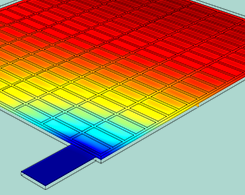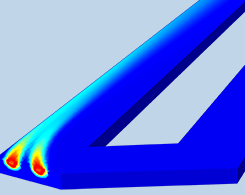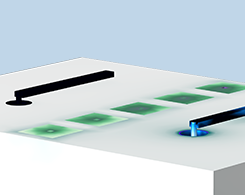Latest Posts

How to Model Conductors in Time-Varying Magnetic Fields
You can use the AC/DC Module to perform frequency-domain simulations for conductors in time-varying magnetic fields by describing the skin effect.

Analyzing the Current Distribution in a Lead-Acid Battery Design
The lead-acid battery in your car is not much different from the original one developed by Gaston Planté in 1859. 1 change is that you can now analyze the current distribution using simulation.

Analyzing Multiphase Flow in an Airlift Loop Reactor Benchmark Model
This blog post features a benchmark model of an airlift loop reactor that validates the use of CFD simulation for analyzing multiphase flow.

Happy Birthday, Gustave-Gaspard Coriolis
Gustave-Gaspard Coriolis’s research into mechanical systems has had far-reaching effects. In fact, the Coriolis effect is used to describe the rotation of Earth, which can be observed from space.

Analyzing Magnetotellurics with Electromagnetics Simulation
Magnetotellurics (MT) is a geophysical method for mapping the magma flow of volcanos. Using electromagnetics simulation, engineers are able to study and improve this technique.

Studying the Decoupling Effect of Electromagnetic Band Gap Structures
Electromagnetic band gaps (EBGs) can suppress unwanted EMI and increase desired EMC between antennas, improving their performance. Learn how to study this decoupling effect via simulation.

Two Methods for Modeling Free Surfaces in COMSOL Multiphysics®
We take you through 2 methods for modeling free surfaces in the COMSOL® software: the level set and phase field methods. Learn how to use each method and their benefits.

Happy Birthday, Inge Lehmann
Inge Lehmann was a Danish geophysicist and seismologist who used seismic waves generated by earthquakes to answer the age-old question: What’s really at the center of the earth?



